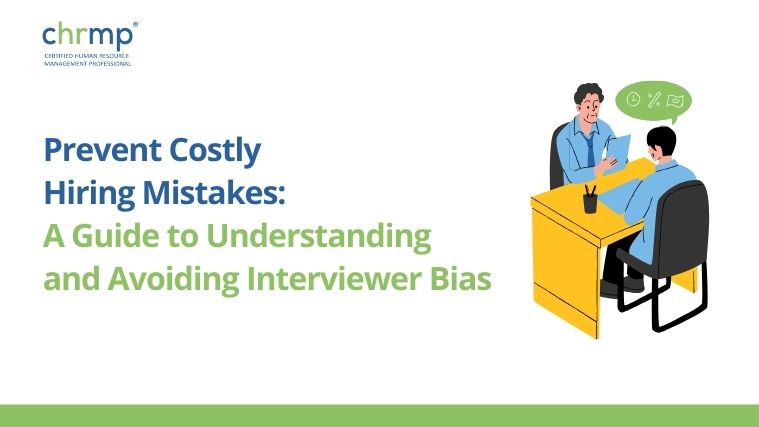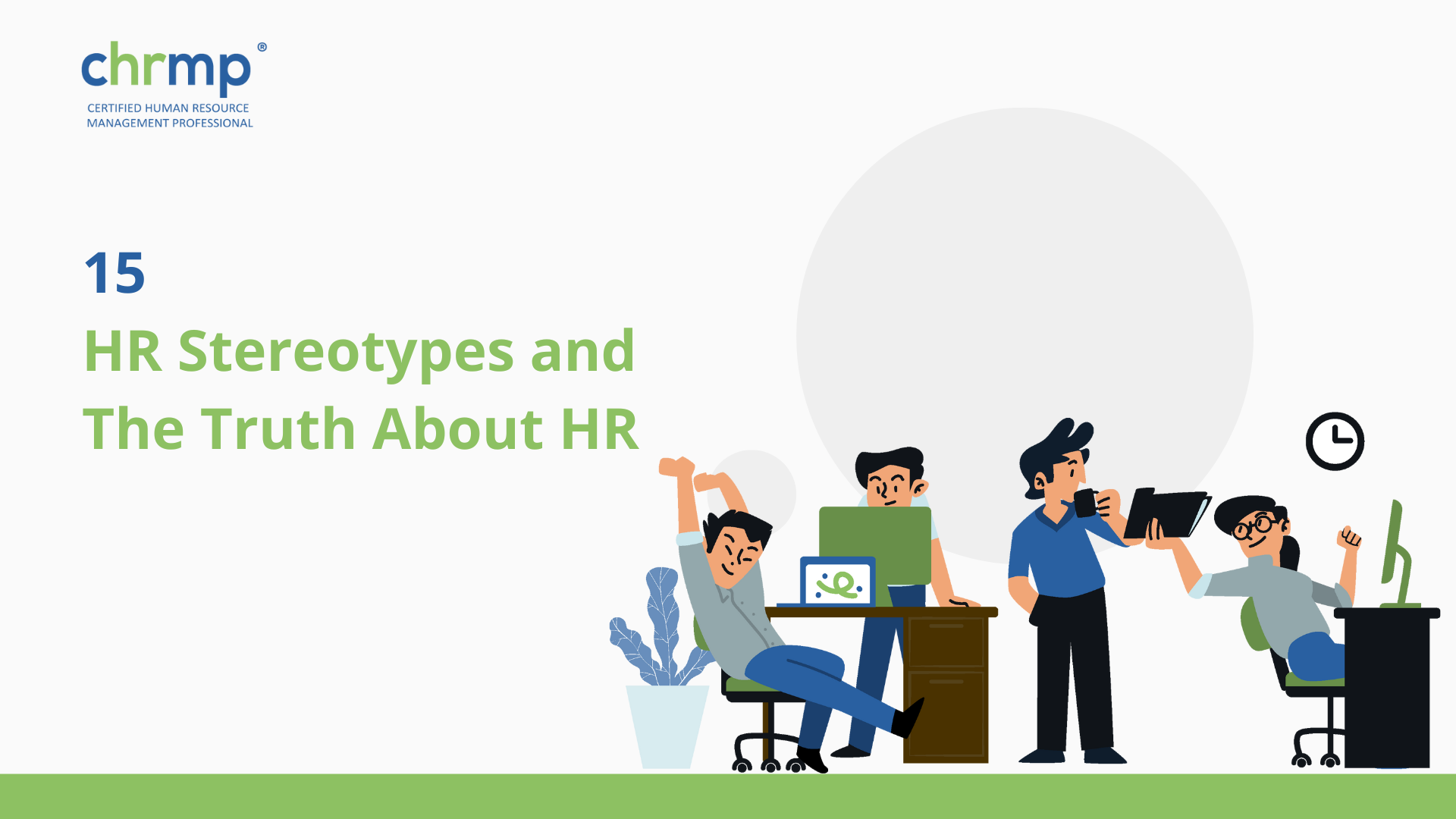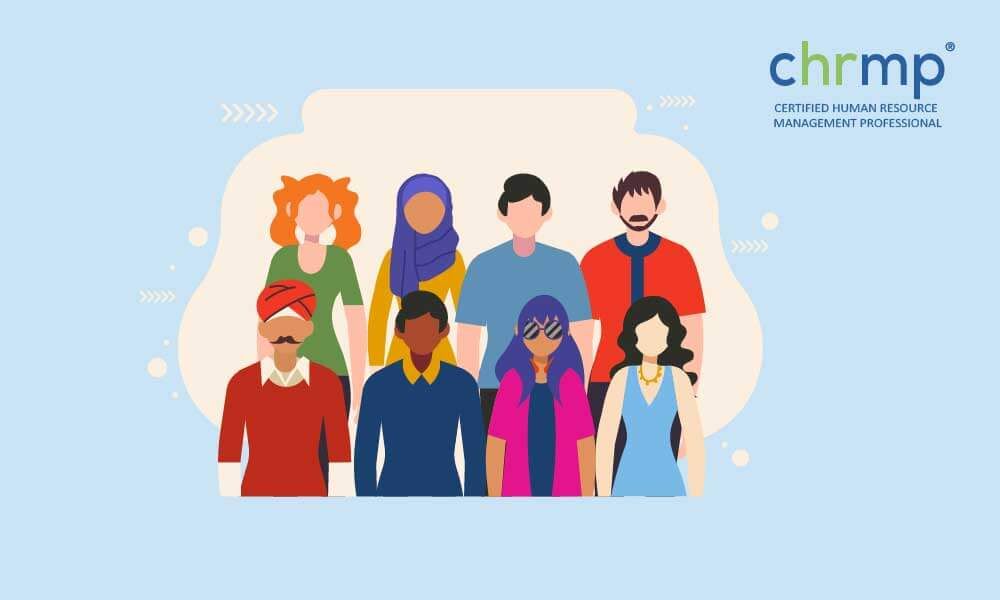

Managing an organization’s most precious asset, its people, is the responsibility of the human resources (HR) departments, which are an essential component of any business.
HR is frequently the focus of false HR stereotypes that can damage its reputation, despite the enormous benefit it provides to firms.
These HR stereotypes frequently include notions that HR professionals are distant from the rest of the business, bureaucratic, and unapproachable.
But, these satires are a long cry from the many intricate tasks HR specialists carry out in contemporary businesses.
In reality, HR professionals have a variety of abilities that are crucial for luring in and keeping skilled workers, fostering a positive work environment, and assuring adherence to labour rules and regulations.
This blog article will look at 15 common HR stereotypes to debunk these negative HR stereotypes and present a more truthful view of the industry.
Our goal is to promote awareness of the critical role performed by HR specialists and acknowledge their contributions to the accomplishments of enterprises.
By dispelling these HR stereotypes, we seek to draw attention to the significance of HR and the important job they perform to support the expansion and improvement of organizations.
HR stereotypes exist due to various factors and misconceptions that have persisted over time. Some reasons for the existence of HR stereotypes include:
1.Limited understanding: People outside of the HR field may have a limited understanding of the breadth and complexity of HR roles and responsibilities. This lack of understanding can lead to oversimplifications and stereotypes.
2. Negative experiences: Some individuals may have had negative experiences with HR departments in the past, such as feeling that their concerns were not addressed or experiencing bureaucratic processes. These negative encounters can contribute to the formation of stereotypes.
3. Perception of administrative tasks: HR is often associated with administrative tasks like paperwork, policies, and compliance. This narrow perception can lead to the belief that HR professionals only focus on administrative duties rather than strategic and people-centric initiatives.
4. Lack of visibility: HR work often occurs behind the scenes, dealing with confidential employee matters or working on long-term strategic initiatives. This lack of visibility may contribute to misunderstandings or misperceptions about the role and impact of HR professionals.
5. Human fallibility: Like any profession, HR professionals can make mistakes or exhibit shortcomings. Instances of mishandled situations or biases within HR can reinforce negative stereotypes.
It is important to recognize that HR roles have evolved significantly over time, encompassing areas such as talent acquisition, employee development, organizational culture, and strategic workforce planning. Overcoming HR stereotypes requires increased awareness, effective communication, and education to dispel misconceptions and promote a more accurate understanding of the valuable contributions HR professionals make to organizations.
1.HR is only an administrative function: According to this HR Stereotype, HR is mainly concerned with administrative duties, including paperwork, payroll, and benefits.
HR is a key strategic partner in helping businesses manage their workforce and accomplish their goals.
2. HR only cares about compliance: According to this HR Stereotype, HR is primarily concerned with ensuring the business complies with legal requirements.
HR professionals are responsible for employee engagement, growth, and retention; compliance is just one component of their duties.
3. HR is bureaucratic and slow: According to this HR Stereotype, HR is ineffective and cumbersome.
Reality: HR professionals are frequently asked to be flexible and quick, and the truth is that HR procedures can be reduced and improved like any other department.
4. HR is a cost centre, not a revenue generator: This stereotype says that human resources (HR) are a waste of corporate resources rather than a source of value. HR is a cost centre, not a revenue creator.
The truth is that HR can increase income by luring in top individuals, keeping them on board, and promoting a pleasant workplace environment.
5. HR doesn’t understand the business: HR is separated from the reality of the business and doesn’t have a seat at the table, according to this stereotype.
HR doesn’t understand the business.
In order to match their plans with the aims and objectives of the firm, HR experts must, in fact, have a thorough understanding of the business.
6. Red tape and paperwork abound in HR: According to this notion, HR is weighed down by paperwork and red tape.
The truth is that technology has made it possible for HR to automate many procedures, giving HR professionals more time to concentrate on more strategic projects.
7. HR is exclusively for large corporations: According to this myth, HR is not required for small or mid-sized businesses.
HR is essential for all businesses, regardless of size, since it helps manage and grow a company’s most valuable resource: its employees.
8. Hiring and firing are crucial to HR: According to this myth, HR is exclusively concerned with hiring and firing personnel.
Reality: HR is involved in every stage of the employee lifecycle from hiring and training to performance evaluation and career advancement.
9. HR is always on the side of management: This myth contends that HR professionals consistently support management, even when doing so is not in the best interests of the workforce.
The truth is that HR professionals must strike a balance between the requirements of the business and those of the employees, and they must speak up on behalf of both.
10. HR is not strategic: This HR stereotype suggests that HR is more tactical than strategic and that HR is not strategic.
The truth is that HR may be a strategic partner who coordinates activities with the broader strategy and objectives of the business.
11. HR is not technology-savvy: This HR Stereotype holds that HR professionals are not tech-savvy and are not at ease using it or understanding its possibilities.
The truth is that HR is becoming more and more dependent on technology for activities like analytics, communication, and recruiting.
12. HR is neither creative nor innovative: According to this HR stereotype, HR practitioners cannot develop novel ideas or strategies.
Reality: Regarding employee engagement and development, HR can be a creative and imaginative department.
13. HR is not customer-focused: According to this HR Stereotype, HR is not concerned with the demands of stakeholders or workers.
In actuality, HR is a service function that must be attentive to its clients’ requirements, including staff members, managers, and the executive team.
14. HR is not data-driven: According to this HR Stereotype, HR professionals don’t base their choices on data and analytics.
The truth is that HR is more concerned with making decisions based on data, especially regarding topics like hiring, retaining, and performance management.
15. HR is not inclusive or diverse: According to this HR Stereotype, HR practitioners are not devoted to fostering diversity and inclusion inside the workplace.
The truth is that by putting in place practises and policies that promote equality, inclusion, and belonging, HR can play a significant part in establishing a diverse and inclusive workplace.
Although some of these stereotypes may be partially true in certain circumstances, it’s critical to understand that not all HR professionals or functions fall under their purview.
It’s also important to note that these stereotypes can undermine the credibility and importance of the HR function within the organization and erect obstacles to effective HR practices.
HR professionals should be aware of these stereotypes and work to challenge them by demonstrating the strategic value of HR, communicating effectively with stakeholders, leveraging technology and data, and championing diversity and inclusion.
By doing so, HR can earn a place at the table and become a trusted partner in achieving business success.
HR is only an administrative function: While HR does handle administrative chores like payroll and benefits, it also plays a strategic role in personnel management and development.
For example, HR may assist identify talent gaps and establish training programmes to solve them, which can eventually boost corporate success.
HR only cares about compliance: While compliance is an important aspect of HR’s responsibilities, it is not the only focus.
HR also plays a role in building a healthy workplace culture, increasing employee engagement and growth, and aligning HR initiatives with company goals.
For example, companies with higher employee engagement tend to have lower turnover rates and higher productivity, which can translate to improved business performance.
HR is bureaucratic and sluggish: While HR procedures might often be regarded as slow or inefficient, they can also be simplified and improved through technology and process innovations.
For instance, automating processes like benefits enrollment and onboarding can reduce paperwork and free up HR professionals to concentrate on more strategic initiatives.
HR is a cost centre, not a revenue generator: While HR may not immediately create income, it may help to revenue development by attracting and keeping top personnel, fostering a pleasant workplace culture, and enhancing employee productivity.
For example, organizations with more employee involvement tend to have higher profitability and growth rates.
HR doesn’t understand the business: HR professionals may not be as knowledgeable in a given business function as other professionals, but they still need to understand the business in order to match HR strategies with organizational objectives.
For example, HR can work with business leaders to identify skill gaps and develop training programmes to address them, which can ultimately improve business performance.
Red tape and paperwork abound in HR: Although administrative tasks fall under the purview of HR, technology has made it possible for HR to streamline many procedures and cut down on paperwork.
Self-service portals and online benefits enrollment, for instance, can cut down on paperwork and make it simpler for employees to obtain information.
HR is only for big companies: HR responsibilities are crucial for managing and developing personnel even if smaller businesses might not have a dedicated HR department.
For instance, a small business may hire a generalist or part-time HR specialist on staff or outsource HR tasks to a third-party service.
Hiring and firing are central to HR: HR is involved at every stage of the employee lifecycle, from onboarding and training to performance management and career development, even though recruiting and termination are essential components of HR’s duties.
As an instance, HR may collaborate with managers to establish performance objectives and offer feedback to assist workers develop and advance in their careers.
HR is always on the side of management: While HR must strike a balance between the interests of the employer and those of the workforce, it is not always in the best interest of the business to support management.
HR may be required to address problems like workplace harassment or discrimination, which, if left unaddressed, might be harmful to both employees and the business.
HR is not strategic: HR may be a strategic partner who ties HR activities to corporate objectives, even if some HR responsibilities may be more tactical in nature.
For instance, HR may create initiatives to enhance employee satisfaction and retention, which would ultimately enhance organizational success.
HR is not creative or innovative: Although it may not be considered a creative or inventive role, human resources may come up with unique solutions to talent management problems.
For instance, HR might establish innovative performance management models or flexible work schedules to boost productivity and employee engagement.
HR is not customer-oriented: HR is still focused on delivering excellent service to internal customers, including workers and managers, even when it may not contact with external consumers.
For instance, HR may offer prompt, individualized assistance for employee questions or issues, which can increase retention and employee satisfaction.
HR is not data-driven: HR can utilize data analytics to make fact-based choices regarding personnel management and development, while some HR tasks may rely on subjective or qualitative data.
For instance, HR might examine data on employee performance to spot patterns and trends that can guide training and development programmes.
HR is neither diverse or inclusive: HR may play a significant role in establishing a varied and inclusive workplace, even if some HR departments may struggle to promote diversity and inclusion. For instance, HR may create policies or initiatives that support fairness, inclusion, and a sense of belonging for all workers.

Although not all HR personnel or functions fit into these stereotypes, it is important to recognize that there may be times when HR falls short of expectations. For instance, HR can find it difficult to handle complicated personnel management issues or might experience resource limitations that make it difficult for it to provide high-quality services. Nonetheless, HR can continue to develop and offer strategic value to the firm by recognizing these difficulties and striving to solve them.
Long-standing HR stereotypes have led to misunderstandings about the genuine nature of HR professionals and the job they conduct.
Nonetheless, it is necessary to understand that HR positions are far more complicated, varied, and important than many caricatures imply.
Despite occasional setbacks, HR professionals are crucial to managing and training people, fostering a positive working environment, and coordinating HR regulations with business goals.
HR professionals need to be well-versed in a variety of fields, including customer service, data analytics, compliance, personnel management, and compliance in order to do their jobs well.
By breaking down HR stereotypes, organizations can better appreciate the vital role that HR plays in driving employee engagement and organizational performance.
An important part of an HR practitioner’s job is to strike a balance between the demands of the business and the employees.
HR may foster a culture of shared goals that is advantageous to the whole company by collaborating with other departments.
The future of HR is expected to be influenced by its agility, flexibility, and forward-thinking as the workplace continues to change as a result of the advancement of technology and shifting worker dynamics.
To offer strategic value to the business, HR professionals must be ready to grab new possibilities and face HR stereotypes head-on.
HR can keep thriving and have a big effect on the success of a business by embracing new opportunities and dispelling HR stereotypes.
Ready to break down the HR stereotypes and become a skilled HR professional? Take the first step by exploring the Certified Human Resources Management Professional (CHRMP) program.
This globally recognized certification equips HR practitioners with the knowledge and skills needed to excel in their roles and drive organizational success.
Don’t let HR stereotypes hold you back – join the CHRMP program today and take your career to new heights!
A commonplace, oversimplified impression or expectation about the function, traits, or conduct of HR practitioners is known as an HR stereotypes.
Positive or negative stereotypes can both be founded on a combination of real and imagined events.
2. Why are these HR stereotypes damaging?
The incorrect assumptions and expectations that might result from these preconceptions about HR professionals can have a negative impact on how they are viewed and respected inside the company.
HR Stereotypes may also prevent the development of trusting relationships, resulting in misunderstandings and miscommunications between HR professionals and employees.
3. How can we get over these HR stereotypes?
Recognizing HR stereotypes for what they are—generalizations that could or might not be true—and putting more emphasis on unique traits and actions are the keys to overcoming them.
To do this, it’s important to take the time to comprehend and value the particular strengths and difficulties of each HR professional and to refrain from making generalizations based on preconceived notions.
It also entails fostering an inclusive culture where everyone is respected for their distinctive contributions.
4. What should I do if an HR professional stereotype is encountered?
It’s crucial to respectfully and constructively refute any HR stereotypes.
This might entail eliciting clarification from the other person, expressing your views and experiences, or highlighting the danger or fallacy of the HR stereotypes.
The ultimate objective is to promote increased knowledge of, appreciation for, and respect for HR professionals and their crucial work.
